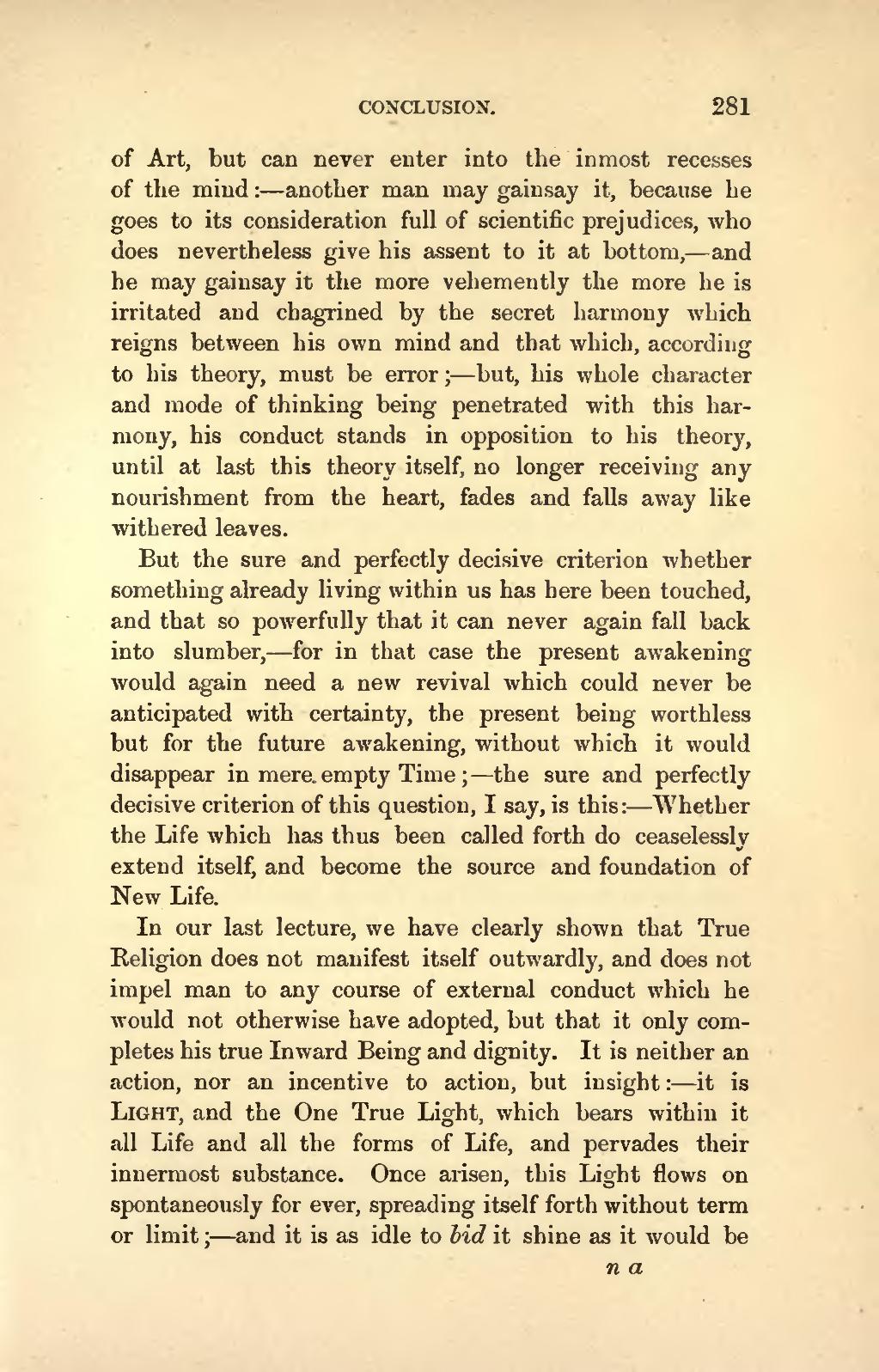of Art, but can never enter into the inmost recesses of the mind:—another man may gainsay it, because he goes to its consideration full of scientific prejudices, who does nevertheless give his assent to it at bottom,—and he may gainsay it the more vehemently the more he is irritated and chagrined by the secret harmony which reigns between his own mind and that which, according to his theory, must be error;—but, his whole character and mode of thinking being penetrated with this harmony, his conduct stands in opposition to his theory, until at last this theory itself, no longer receiving any nourishment from the heart, fades and falls away like withered leaves.
But the sure and perfectly decisive criterion whether something already living within us has here been touched, and that so powerfully that it can never again fall back into slumber,—for in that case the present awakening would again need a new revival which could never be anticipated with certainty, the present being worthless but for the future awakening, without which it would disappear in mere empty Time;—the sure and perfectly decisive criterion of this question, I say, is this:—Whether the Life which has thus been called forth do ceaselessly extend itself, and become the source and foundation of New Life.
In our last lecture, we have clearly shown that True Religion does not manifest itself outwardly, and does not impel man to any course of external conduct which he would not otherwise have adopted, but that it only completes his true Inward Being and dignity. It is neither an action, nor an incentive to action, but insight:—it is Light, and the One True Light, which bears within it all Life and all the forms of Life, and pervades their innermost substance. Once arisen, this Light flows on spontaneously for ever, spreading itself forth without term or limit;—and it is as idle to bid it shine as it would be
